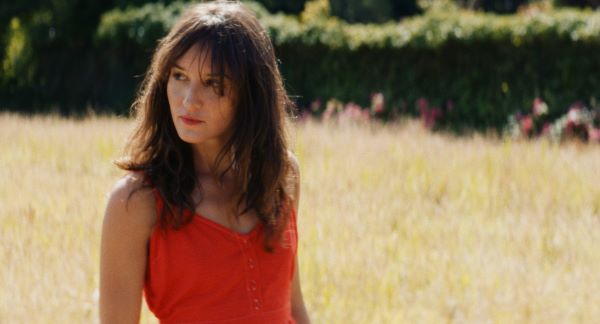![]() There’s a trend afoot in the movies—or should that be a trend running wild? Three art-house films feature prominent moments of young women uninhibitedly sprinting like restless colts, faces flushed and hair flying in the wind. The latest to speed across the screen is the lead character of Charline Bourgeois-Tacquet’s Anaïs in Love. This sort-of-antiheroine is not as earnest as the protagonist of The Worst Person in the World, nor as wry and savvy as the anxious young lass from Licorice Pizza. In fact, she’s a monster of self-absorption. But flighty, rude, and narcissistic as she might be, Anaïs in Love somehow delivers the most satisfying filmmaking experience.
There’s a trend afoot in the movies—or should that be a trend running wild? Three art-house films feature prominent moments of young women uninhibitedly sprinting like restless colts, faces flushed and hair flying in the wind. The latest to speed across the screen is the lead character of Charline Bourgeois-Tacquet’s Anaïs in Love. This sort-of-antiheroine is not as earnest as the protagonist of The Worst Person in the World, nor as wry and savvy as the anxious young lass from Licorice Pizza. In fact, she’s a monster of self-absorption. But flighty, rude, and narcissistic as she might be, Anaïs in Love somehow delivers the most satisfying filmmaking experience.
Part of the movie’s punch can be chalked up to the sheer audacity of its titular character. There’s no pensive sighing or coming-of-age blues for Anaïs (rising French star Anaïs Demoustier). Anaïs blows into a room like a tornado: constantly running late (her hurrying accompanied by tinkling classical music on the soundtrack), hair-raisingly self-centered, and prone to oversharing and interrupting. In the opening scene, she flummoxes her buttoned-up landlady to wiggle out of paying overdue rent. Not long after, she brushes off attempts to connect emotionally from her disappointed soon-to-be ex-husband. Accosting a wealthy older writer, Daniel (Denis Podalydès), through a combination of helplessness and feminine wiles is on the menu too.
It’s hard to tell if Anaïs’s maddening flightiness is a natural trait or a manipulative contrivance, but her volatile charms, along with a willingness to show off her lithe body, rarely fail to mesmerize men. The film subtly mocks the male of the species as easy marks for this jeune fille, and some of its cleverest scenes play out when the besotted messieurs are suddenly annoyed and thrown off balance by a young woman over whom they assumed they had the upper hand.
Therefore, it makes total sense when the only person who can talk Anaïs down and get her out of her own head is another woman. Emilie (an appealing Valeria Bruni Tedeschi) is Daniel’s wife and a prominent writer in her own right. Fascinated by the older woman’s warmth and gravitas, Anaïs schemes to pursue her to a stuffy academic conference in the countryside. Dodgy encounters with the surly conference center staff, her supervising professor, and Emilie’s angry husband test Anaïs’s aplomb and provide set pieces that are very funny in an of-the-moment cringeworthy way.
On the serious side, flirtation and alone-time with Emilie deepen into something more significant. The women’s interludes slow the film down and provide some welcome breathing room. Emilie knows that Anaïs is something of a pest and con artist, but is drawn to her anyway and dares to confront her gently with a question we’ve mused over ourselves: “Anaïs, are you real?” Can Anaïs focus on someone beyond herself? Can she really see eye to eye with another human being?
A drawn-out and talky finale leaves the question—sort of—open. But the ride along the way has been refreshing. Part of the reason why is that Bourgeois-Tacquet wisely limits her scope to Anaïs and her blunders, without Worst Person’s ruminations over the meaning of life and Licorice’s coy musings on fame. The tighter focus draws us closer to this not just flawed but thoroughly exasperating young woman. In spite of ourselves, we root for Anaïs, and wonder where her rush through life will take her next.







Leave A Comment